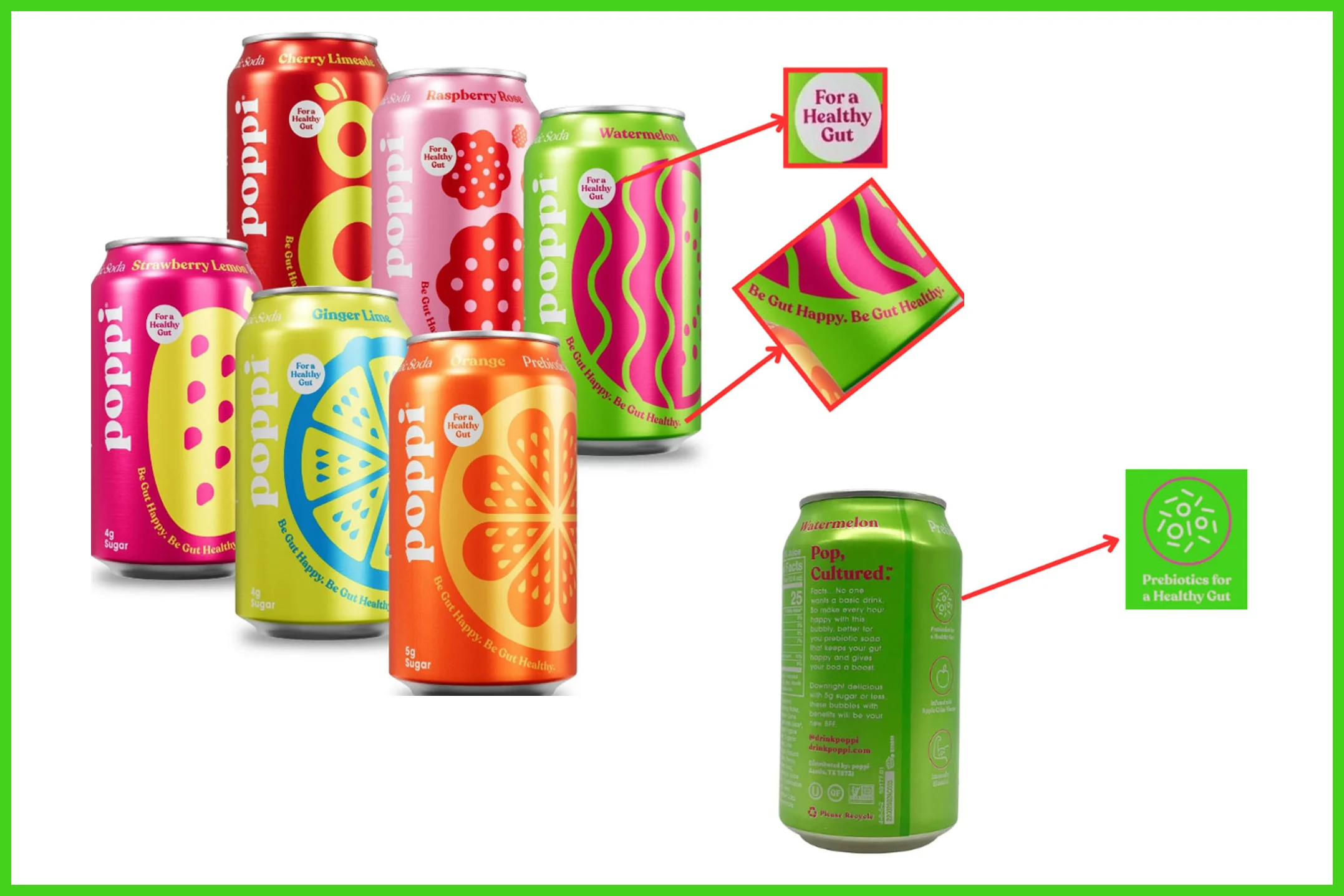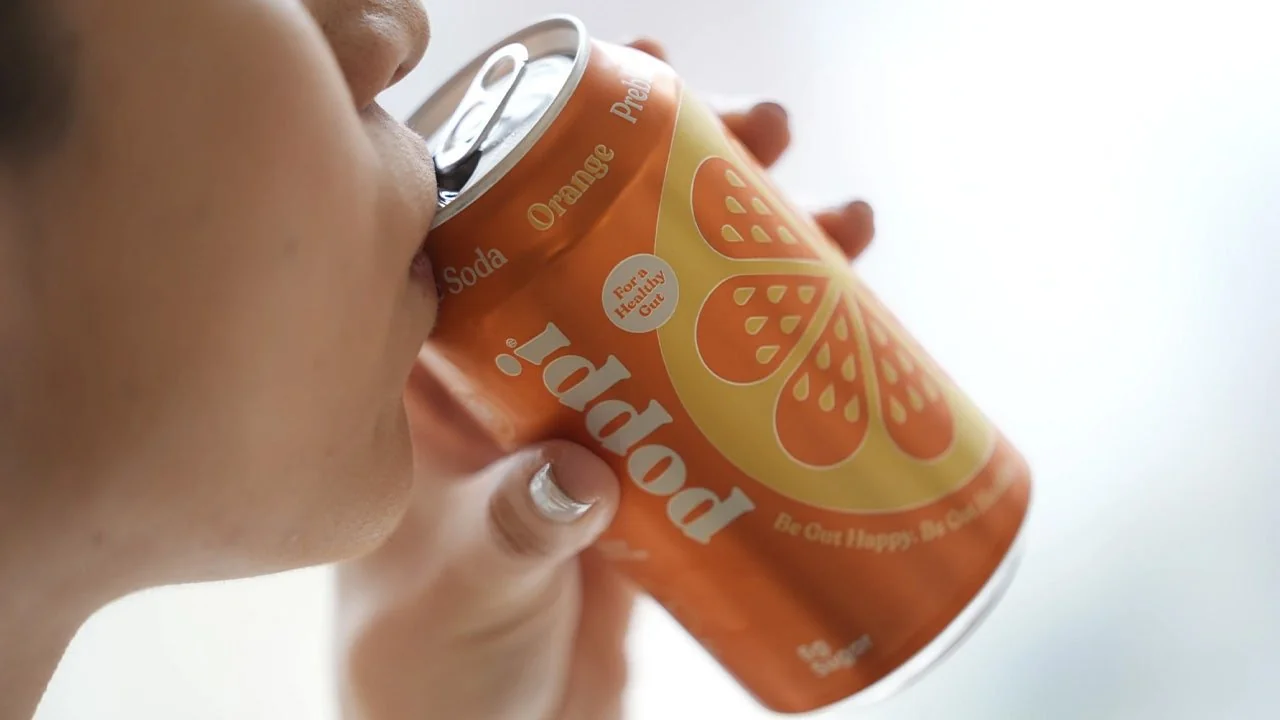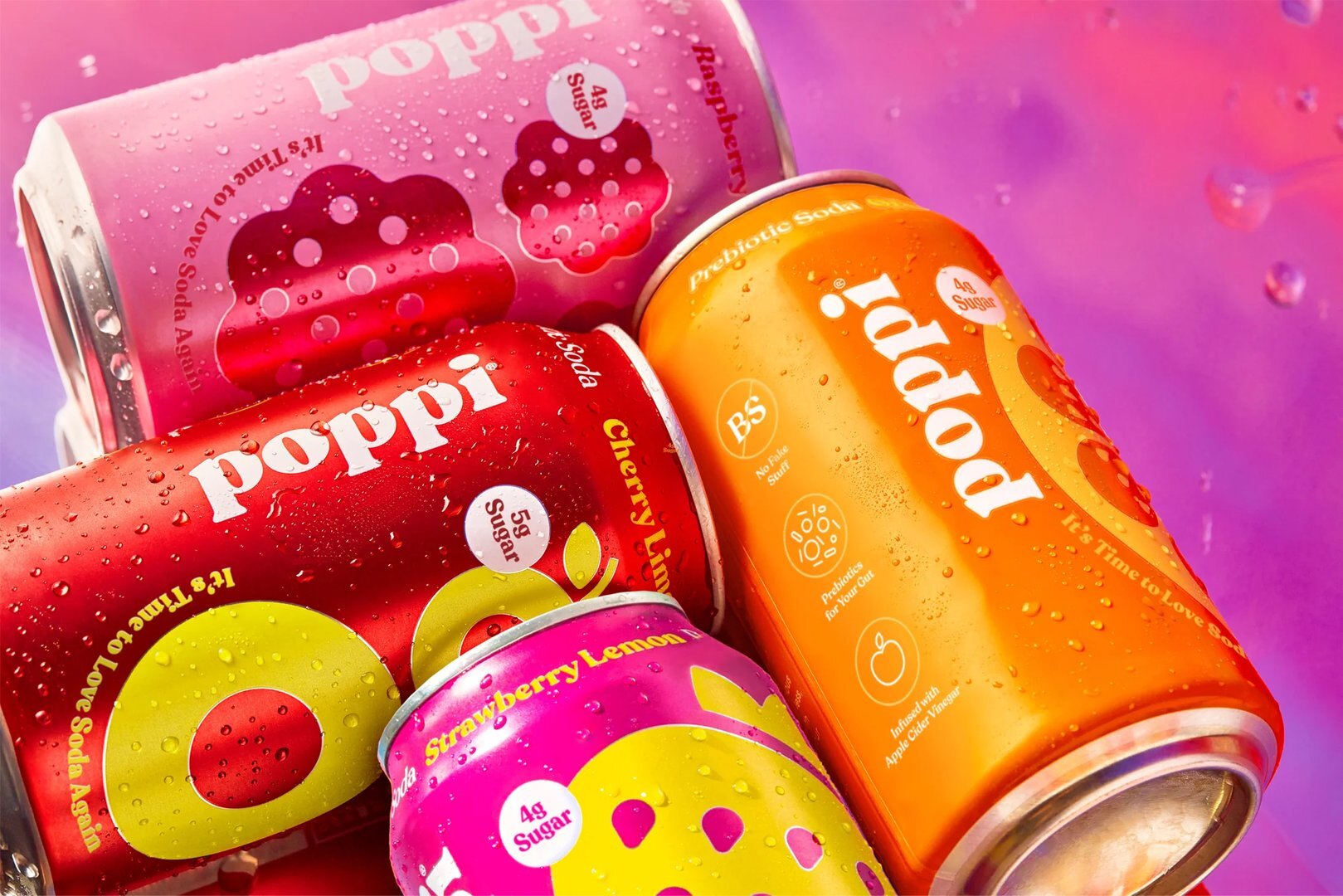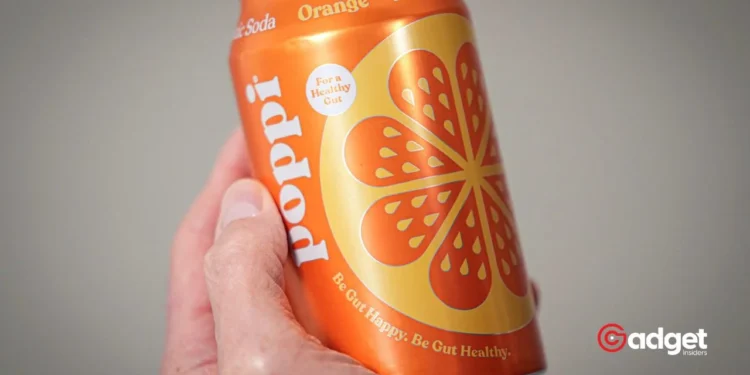In the vast expanse of the beverage market, where the shelves of grocery stores and gas stations are lined with endless options, one brand has stood out, not just for its popularity but now for its controversy. Poppi, once praised for its innovative approach in the beverage industry, now finds itself in the throes of a legal battle over the veracity of its health claims.

Poppi’s Promising Start and Health Trend Influence
Poppi first came into the limelight with its claim of offering a healthier alternative to traditional sugary sodas. The brand positioned itself within the growing trend toward health-conscious consumption, tapping into the public’s increasing aversion to sugar. Educational campaigns across the U.S. have highlighted the dangers of excessive sugar intake, influencing consumers to seek out alternatives. Large beverage companies have adapted, promoting drinks that reduce sugar content or replace it altogether with alternative sweeteners.
Poppi’s product lineup, including flavors that mimic traditional sodas like Cola and Root Beer, purported to offer health benefits through added prebiotics and apple cider vinegar, promising improved gut health with a mere 5 grams of sugar per can. The brand’s growth was fueled by significant endorsements, including a successful pitch on “Shark Tank” which led to an endorsement from celebrity investor Rohan Oza and adoption by influential figures like Kylie Jenner.
POPPI FACES CLASS ACTION LAWSUIT
According to the complaint filed last week, the prebiotic soda brand claims to provide “prebiotic” benefits despite it being “basically sugared water" pic.twitter.com/0Vp8P7xfHY
— BowTiedOlive (@BowTiedOlive) June 5, 2024
Legal Challenges and Allegations
However, the shine on Poppi’s apple might be tarnishing. A recent class action lawsuit filed in the Northern District Court of California paints a different picture of the beloved beverage. The lawsuit claims that despite its health-oriented marketing, Poppi is “basically sugared water,” lacking in the promised health benefits its marketing suggests. The allegations extend to its use of inulin, a substance claimed to act as a prebiotic. According to the lawsuit, not only does inulin fail to deliver on these promises consistently, but it may also lead to adverse health effects.

The legal documents reveal a potentially damaging scenario for Poppi, with the lawsuit suggesting the company might face up to $5 million in penalties. Despite the brewing storm, Poppi remains defiant. The company has publicly stated that the lawsuit is baseless and expressed its intention to “vigorously defend against these allegations.”
Market Impact and Consumer Reaction
The controversy has not yet dented Poppi’s market performance significantly. As of 2024, the brand’s sales figures have impressively topped $100 million, with Poppi commanding a 19% share of the U.S. market—surprisingly surpassing Coca-Cola by 1.5 times in terms of market share. The drink continues to be a fixture in major U.S. retailers such as Target, Costco, and Whole Foods, and remains a popular choice on Amazon.
The ongoing lawsuit, however, poses questions about the future of Poppi and similar brands in the rapidly evolving beverage market. As consumers become more educated and regulators more stringent, the beverage industry may face tighter scrutiny over what goes into our drinks and how these ingredients are marketed.

For now, Poppi’s tale is a testament to the fine line between innovation and regulation in the pursuit of healthier consumer choices. Whether Company can maintain its fizzy popularity in the market or if it will go flat in the face of legal challenges remains to be seen. As the court case unfolds, both the industry and consumers will be watching closely, ready to recalibrate their choices in a market that never stops evolving.










